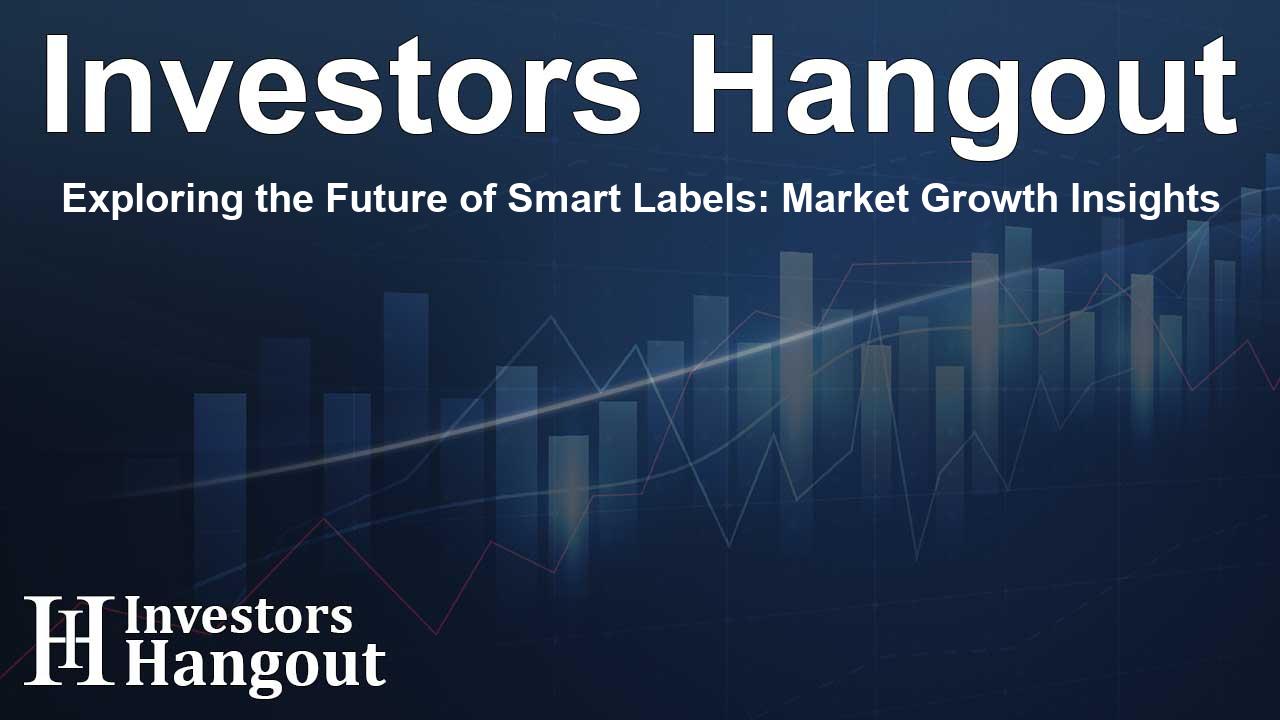Exploring the Future of Smart Labels: Market Growth Insights

The Future of Smart Labels and Market Dynamics
The smart labels market is poised to experience significant growth, expected to reach an impressive USD 17.33 billion by 2029. With a remarkable compound annual growth rate (CAGR) of 8.7%, this upward trend reflects the evolving needs of various industries. Smart labels are transforming the way businesses operate, moving beyond simple product identification to offering real-time data tracking and enhanced customer engagement. As consumer demands rise, the integration of smart labels in various sectors is becoming a vital component for operational efficiency and product authenticity.
Understanding Smart Labels: What Are They?
Smart labels incorporate advanced technologies such as RFID, NFC, and EAS, providing businesses with the means to track products and inventory in real-time. Their capabilities extend to offering vital data that enhances security measures and facilitates interactive systems for consumer interaction. This multifaceted functionality is boosting their popularity across numerous industries such as retail, logistics, and healthcare. As businesses aim to optimize operations and meet consumer expectations, the demand for such innovative solutions is surging.
The Role of EAS Labels in Retail
Among the key technologies in the smart label market, Electronic Article Surveillance (EAS) labels play a crucial role in supporting retail operations. Implemented predominantly in stores, these labels help monitor merchandise and prevent theft without hindering the shopping experience for customers. Major retailers like Walmart and Target utilize EAS labels to safeguard products while ensuring the shopping environment remains efficient. These security systems trigger alarms when items pass through detection gates, significantly reducing shrinkage rates and losses, thus becoming a vital asset for retail businesses looking to secure their products effectively.
Pallet Tracking: Enhancing Supply Chain Visibility
Pallet tracking is another significant segment of the smart labels market, providing enhanced visibility throughout the supply chain. By implementing RFID technology, businesses can monitor their pallets from storage to transportation, reducing errors and theft. Companies like Coca-Cola and Amazon demonstrate the effectiveness of RFID-based smart labels in streamlining inventory processes, mitigating human error, and improving delivery timelines. As the need for efficient logistics solutions continues to increase, pallet tracking through smart labels is expected to see sustained growth.
Retail Sector and Smart Label Integration
The retail sector represents a substantial portion of the smart labels market by end-use applications. By utilizing technologies like RFID and Electronic Shelf Labels (ESL), retailers can manage their inventories more effectively and minimize manual errors. The data collected in real-time ensures products are accurately stocked and displayed, facilitating smoother operations. By adopting these technologies, major retailers like Walmart and Macy’s optimize inventory management processes and align closely with consumer demands. The integration of smart labels is projected to increase further as e-commerce continues to expand and reshape retail landscapes.
European Market Trends and Opportunities
The European market holds significant potential for smart label technology, albeit with variability in adoption across the region. Interest is growing, especially in less developed markets, as businesses recognize the advantages that smart labels can offer in traceability and asset management. Industries such as manufacturing, healthcare, and distribution are witnessing their applications expand. The shift in focus towards supply chain enhancements and diverse end-use industries suggests Europe is on its way to becoming a vital player in the smart labels market.
Emerging Players and Competitive Landscape
This growing market is fueled by key players such as Avery Dennison Corporation, CCL Industries Inc., Zebra Technologies Corporation, and SATO Holdings Corporation. Their innovations and competitive strategies contribute significantly to the advancement of smart label technologies across various sectors. As the market progresses, collaborations and technological enhancements are likely to shape its future, driving further growth and adoption.
Frequently Asked Questions
What are smart labels?
Smart labels are advanced tagging systems utilizing technologies like RFID, NFC, and EAS for real-time tracking and enhanced identification, vital for various industries.
How fast is the smart labels market expected to grow?
The smart labels market is projected to grow from USD 11.43 billion in 2024 to USD 17.33 billion by 2029, with a CAGR of 8.7%.
Which sector drives the largest demand for smart labels?
The retail sector accounts for the largest share, as businesses adopt smart labels to improve inventory management and customer engagement.
What is the role of pallet tracking in smart labels?
Pallet tracking uses RFID technology to enhance supply chain visibility, allowing businesses to monitor inventory efficiently through the logistics process.
How is Europe positioned in the smart labels market?
Europe is seeing increasing investment in smart label technology, with growing adoption across logistics, manufacturing, and retail sectors, indicating significant future potential.
About The Author
Contact Lucas Young privately here. Or send an email with ATTN: Lucas Young as the subject to contact@investorshangout.com.
About Investors Hangout
Investors Hangout is a leading online stock forum for financial discussion and learning, offering a wide range of free tools and resources. It draws in traders of all levels, who exchange market knowledge, investigate trading tactics, and keep an eye on industry developments in real time. Featuring financial articles, stock message boards, quotes, charts, company profiles, and live news updates. Through cooperative learning and a wealth of informational resources, it helps users from novices creating their first portfolios to experts honing their techniques. Join Investors Hangout today: https://investorshangout.com/
The content of this article is based on factual, publicly available information and does not represent legal, financial, or investment advice. Investors Hangout does not offer financial advice, and the author is not a licensed financial advisor. Consult a qualified advisor before making any financial or investment decisions based on this article. This article should not be considered advice to purchase, sell, or hold any securities or other investments. If any of the material provided here is inaccurate, please contact us for corrections.
